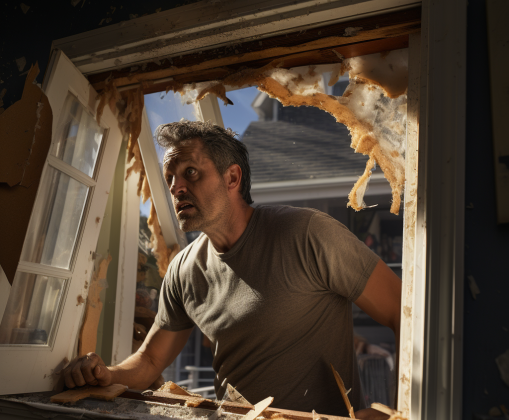
Windows are essential to any building, providing natural light, ventilation, and protection from the elements. However, windows are also vulnerable to damage from various sources.
This damage can be costly to repair or replace and can also compromise the safety and security of the building. This article will explore some common causes of window damage and ways to prevent them.
- Weather-related damage Windows can be damaged by extreme weather conditions such as heavy rainfall, strong winds, and hailstorms. Over time, exposure to these elements can weaken the window frame, cause cracks, and lead to leaks. To prevent weather-related damage, investing in high-quality windows designed to withstand harsh conditions is important. Regular maintenance, such as cleaning and inspections, can also help identify and repair any damage before it becomes severe.
- Human error can also damage windows, especially in commercial or public buildings. Accidents such as impact damage from objects or vandalism can cause cracks or glass shattering. To prevent human-related damage, educating individuals on the proper use and handling of windows is important. Installing safety and security measures such as bars or film on windows can also minimize the risk of damage from intentional or accidental causes.
- Age-related wear and tear As windows age, they may become more vulnerable to damage. Wear can cause the window frame to weaken and the glass to become more prone to cracks or breaks. Regular maintenance, such as cleaning and lubrication, can help prolong the lifespan of windows, but eventually, replacement may be necessary. When selecting replacement windows, it is important to consider durability and longevity to minimize the need for frequent replacements.
- Incorrect installation Improper installation of windows can also lead to damage. If the window frame is not aligned correctly or sealed, it can cause leaks, drafts, and even structural damage to the building. To prevent incorrect installation, working with a qualified and experienced window installer is important. Proper installation techniques, including sealing and weather-stripping, can help ensure the longevity and effectiveness of windows.
- Sun exposure can cause damage to windows over time. Ultraviolet rays can cause the window frame to fade or become brittle, while excessive heat can cause the glass to crack or warp. To prevent sun-related damage, investing in windows designed to withstand exposure to UV rays and high temperatures is important. Window films or shades can also provide additional protection and reduce heat transfer, which can help minimize the risk of damage.
Windows play a pivotal role in any structure, serving as a vital component that facilitates the infusion of natural light, ventilation, and safety against external elements.
Given their significance, it is imperative to safeguard windows against damage by adopting a proactive approach. A critical step in this regard is to develop an in-depth understanding of the typical sources of window damage and implement suitable measures to preclude them.
Doing so enables individuals and businesses to not only enhance the longevity and functionality of their windows but also ensure the safety and security of the building. Consistent upkeep, coupled with the use of high-quality materials, is instrumental in averting window damage.
At the same time, expert installation procedures that include weather-stripping and sealing are crucial in safeguarding the structural integrity of the building. In summary, protecting windows against damage is a multi-faceted process that requires a range of measures, including regular maintenance, utilization of top-grade materials, and professional installation, to preserve the value of the building.
